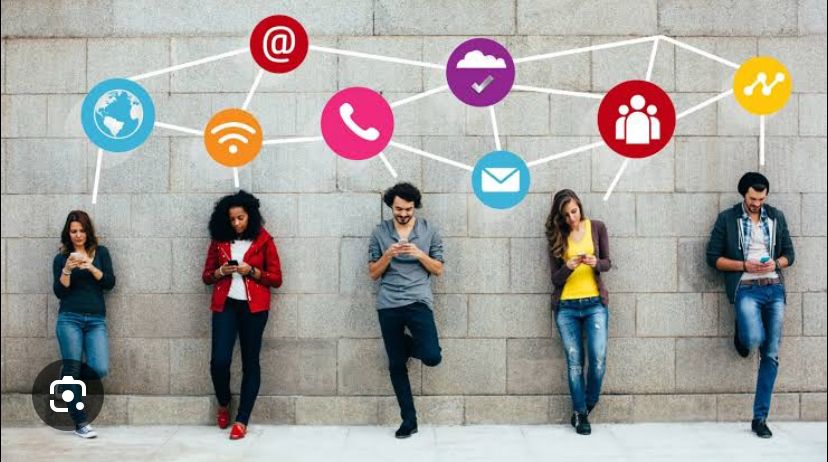
What is Social Media?
Social media is a platform where we can communicate with a large number of people, make connections, and interact with them. It operates on the internet. A user usually creates an account on such a platform and allows interaction with the millions of other users available on it according to their preferences and choices. Apart from the interaction, it also allows users to share information, chat with other people, share their opinions, create content, and embrace their differences.
In today’s world, social media is an important part of young people’s lives, determining and shaping their perspectives. The youth typically adopt and pursue social media trends; for example, in dressing styles, the youth adopt dresses and styles that are promoted as trends by social media.
Social media not only allows people to share their opinions, but it also shapes the opinions of its users. Social media have an impact on their users as well as society as a whole, both positive and negative.
Social media has profoundly impacted society, transforming the way people communicate, interact, and share information. Its influence extends to various aspects of life, including social connections, education, business, and personal expression.
i) Global Connectivity and Community Building
Social media platforms have connected people worldwide, fostering global communication and collaboration. They enable users to share ideas, cultures, and experiences, bridging geographical gaps. Online communities have formed around shared interests, providing a sense of belonging and support ¹.
ii) Education and Learning
Social media has democratized access to information, allowing people to share and access knowledge, news, and educational resources. Platforms like YouTube, Instagram, and Facebook have become hubs for learning, with many creators offering free educational content on various topics.
iii) Business and Economic Opportunities
Social media has created new business models, such as e-commerce, digital marketing, and social media entrepreneurship. It has also provided job opportunities in social media management, content creation, and digital marketing.
iv) Personal Expression and Creativity
Social media has given people a platform to express themselves, share their thoughts, and showcase their creativity. Artists, writers, and musicians can now reach a global audience, sharing their work and connecting with fans.
v) Social Movements and Activism
Social media has played a crucial role in raising awareness about social causes, mobilizing communities, and promoting social change. It has enabled people to connect with others who share similar interests and passions, facilitating collective action.
Challenges and Concerns
While social media has many benefits, it also has its drawbacks. These include ¹ ²:
a) Cyberbullying and harassment: Social media can be a breeding ground for online abuse and harassment.
b) Digital divide: Not everyone has equal access to social media, creating a gap between those who are connected and those who are not.
c) Misinformation and disinformation: Social media can spread false information quickly, contributing to confusion and chaos.
d) Mental health concerns: Excessive social media use has been linked to mental health issues, such as anxiety, depression, and loneliness.
In conclusion, social media has had a profound impact on society, offering numerous benefits and opportunities for connection, education, and self-expression. However, it also presents challenges and concerns that need to be addressed to ensure a healthy and positive online environment.